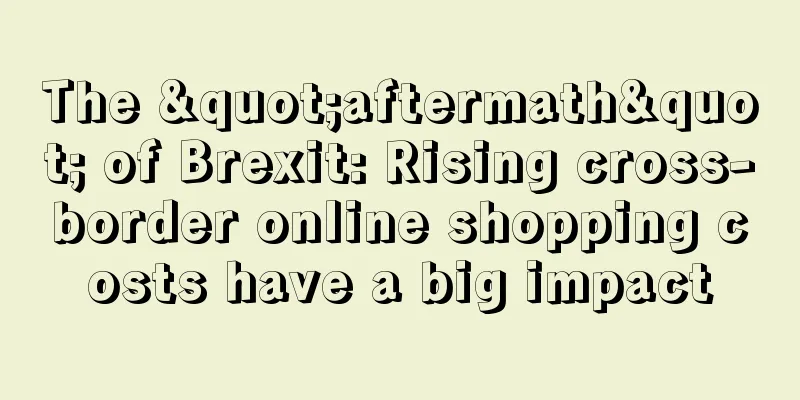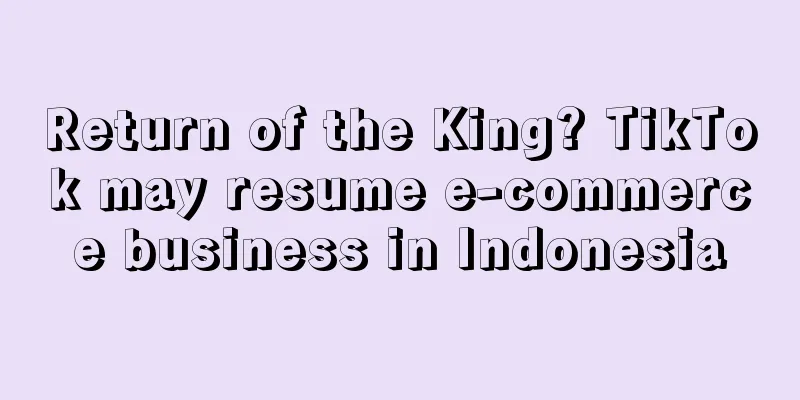The "aftermath" of Brexit: Rising cross-border online shopping costs have a big impact

|
According to a survey by the International Postal Corporation ( IPC), a cross-border e-commerce survey was conducted on 33,000 consumers in 40 countries around the world . Among them, customs fees for online shopping in Ireland jumped the most among the 40 countries in 2021, and the impact of VAT on cross-border shopping soared from 7% to 29%. The increase in such costs has also hit consumers' shopping enthusiasm.
According to the IPC, one of the reasons for this surge is Brexit, which indirectly reflects the UK's dominant position in the EU e-commerce market.
The survey analyzed current and future e-commerce trends and preferences in Ireland. 25% of respondents felt that online shopping was affected by Brexit, and 39% of European consumers said they were greatly affected by the EU's new VAT and customs laws. The regulations came into effect in July last year and imposed new fees on all products purchased outside the EU.
The introduction of new regulations has also led to an increase in the number of people who need to pay additional e-commerce related fees. In 2021, 21% of people paid import fees for this purpose, while in 2020 this proportion was only 13%.
Regarding the new VAT regulations, 39% of respondents said that it had an impact on their cross-border shopping, with the prices of goods they bought increasing compared to previous years, or they would have to pay additional customs fees.
According to the survey results, 22% of Irish consumers make at least one online purchase per week, including domestic and cross-border purchases. 79% of consumers prefer to shop online once a month. According to the survey, domestic e-tailers in Ireland will be more popular than cross-border online shopping in the future, and 27% of respondents said they will buy more goods domestically.
Amazon is their most commonly used shopping platform. In terms of cross-border shopping, 26% of respondents buy on Amazon, followed by 19% on AliExpress, and eBay ranks third with 10%.
On the other hand, consumers showed more concern about online shopping becoming a sustainable option. 49% of respondents said they wanted cross-border parcels to be carbon neutral, and 44% were concerned that sustainability would change their online shopping behavior.
Regarding online shopping packaging, 70% of people hope that their packaging materials are recyclable, 65% hope that their packaging is reusable, and 50% hope that their packaging is biodegradable.
Sellers can analyze the results of the survey report and understand the issues that consumers in different countries are concerned about and their shopping habits, which can be helpful for product sales and consumer communication. Ireland Cross-border online shopping |
<<: OnBuy relocates its headquarters to accelerate market expansion
Recommend
eWTP digital customs clearance cross-border import 9610 mode is launched, helping small and medium-sized cross-border enterprises reduce costs by 30%
On November 1, Alibaba's eWTP digital customs...
Australia Post recruits 4,000 new staff in preparation for Christmas
Australia Post plans to add 4,000 team members to...
Ozon cuts cost of shipping ultra-small goods to Russia by more than half
Ozon has introduced a new logistics freight polic...
Sales of tourism equipment in Russia continue to grow
Due to the impact of the epidemic, overseas trave...
What is Deconovo? Deconovo Review, Features
Deconovo is Mujia Home Furnishing's own brand ...
India's Indo Count predicts that demand for home textiles will increase
Indo Count, one of the largest home textile manuf...
What is Alfa Bank? Alfa Bank Review, Features
Alfa Bank is the largest private bank in Russia. ...
Urgent! Another Amazon seller is sued
Recently, several popular products have been sued...
Sales volume surges! South Korea's home appliance market continues to heat up
Last year, the epidemic swept the world, and the ...
What is Sufa Cross-border Supply Chain? Review, Features
The head office of Sufa Cross-border Supply Chain ...
Bubble balls and other summer products are hot on Amazon
With the arrival of summer, the hot weather bring...
What is Crossing Media? Crossing Media Review, Features
Crossing Media was founded in Los Angeles, USA. W...
What is Noom? Noom Review, Features
Noom is a consumer-led digital health company help...
Huakai Yibai to spend 1.5 billion to build South China headquarters
Many big sellers in the cross-border circle have ...
In November, US retail sales increased by 14.8% year-on-year, with clothing and sports products performing the best!
Despite the current problems in the United States...









